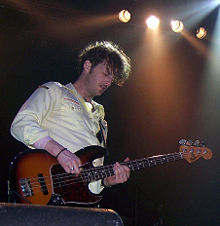The Other Tradition
Andrew Whiteman on Poetics
Per Larry Sawyer, Andrew Whiteman has asked the following:
 I’m interested in poetry of the ‘other tradition,’ as spoken about by Jerome Rothenberg or Marjorie Perloff or blogged by Al Filreis or Lemon Hound. It’s not simply contemporary work. It’s a way of reading poetry through types of restlessness of being in the world. It could be Pound translating “The Seafarer” or it could be Linh Dinh’s photo blog; the poet is engaging with the ‘soul of the world’ which he or she finds to be fucked up in some way or another. The stance of being against the zeitgeist. Saying that, I definitely am not a fan of all types of ‘rebellious’ / ‘disruptive’ poetry, whether abstruse or ‘slam’, just because it speaks out. Nor do I dislike the haiku of Basho or the ‘everydayness’ of Berrigan and the New Yorkers. I suppose the way I read these writers is that their voices are implicitly rejecting of what society-at-large was pimping at the time. I feel like the times are hurtful, solipsistic to a new level and cruel and ignorant to staggering degrees. Poetry is a way to make vision clear. What’s my fucked up version of Shelley? “Poets are the true legislators of the unacknowledged world.”
I’m interested in poetry of the ‘other tradition,’ as spoken about by Jerome Rothenberg or Marjorie Perloff or blogged by Al Filreis or Lemon Hound. It’s not simply contemporary work. It’s a way of reading poetry through types of restlessness of being in the world. It could be Pound translating “The Seafarer” or it could be Linh Dinh’s photo blog; the poet is engaging with the ‘soul of the world’ which he or she finds to be fucked up in some way or another. The stance of being against the zeitgeist. Saying that, I definitely am not a fan of all types of ‘rebellious’ / ‘disruptive’ poetry, whether abstruse or ‘slam’, just because it speaks out. Nor do I dislike the haiku of Basho or the ‘everydayness’ of Berrigan and the New Yorkers. I suppose the way I read these writers is that their voices are implicitly rejecting of what society-at-large was pimping at the time. I feel like the times are hurtful, solipsistic to a new level and cruel and ignorant to staggering degrees. Poetry is a way to make vision clear. What’s my fucked up version of Shelley? “Poets are the true legislators of the unacknowledged world.”
Andrew Whiteman is a Canadian musician and songwriter. Forming the Bourbon Tabernacle Choir in Toronto out of high school, he eventually left the band in 1993 after eight years and went on to produce a solo effort, Fear of Zen, in 1995, as well as an album with the band Que Vida in 1998. Leslie Feist subsequently invited Whiteman to collaborate with herself and what was then essentially the core of Broken Social Scene—Brendan Canning, Kevin Drew and Justin Peroff.[1] The chemistry was successful and Whiteman became one of the band's four members to consistently appear in every tour. Whiteman also fronts the band Apostle of Hustle with bassist Julian Brown and drummer Dean Stone.